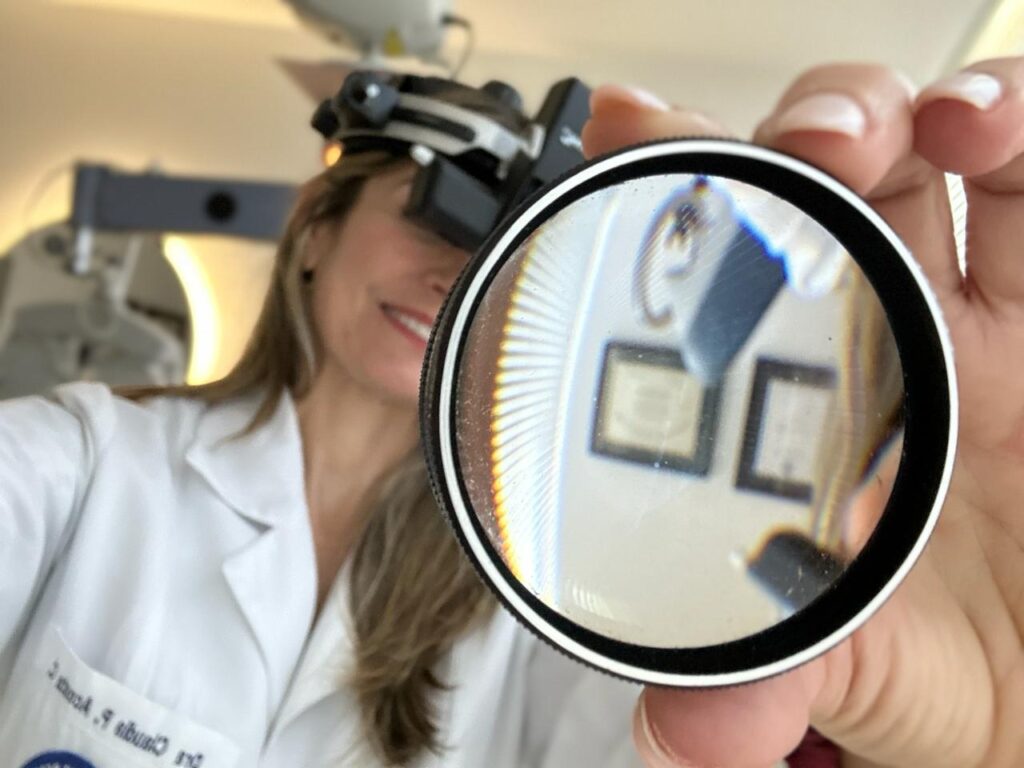Surgeries and procedures
Book a Consultation:
Medical Retina: Laser and Antiangiogenic Therapy
Medical retina encompasses specialized treatments that seek to preserve the health of the retina and prevent vision loss. Dr. Claudia Acosta employs advanced technology, such as laser and anti-angiogenic therapy, to treat various retinal diseases, helping to maintain visual function and improve the quality of life of her patients.

What are Retinal diseases?
Retinal diseases are conditions that damage this sensitive layer of the eye, essential for clear vision, and can be caused by aging, chronic conditions such as diabetes, or injury. These diseases include retinal tears, peripheral retinal degenerations, age-related macular degeneration, diabetic retinopathy and other disorders that can lead to progressive vision loss if left untreated.
Treatment options
Treatment options for retinal diseases include the use of lasers, which seal tears or control damage caused by degeneration or retinopathy, and anti-angiogenic therapy, which blocks abnormal blood vessel growth in the retina, a common cause of visual loss in diseases such as macular degeneration. Both approaches are effective in stabilizing vision and, in many cases, preventing severe visual impairment.
Recovery from laser procedures or anti-amagiogenic therapy
Dr. Claudia Acosta’s indications for the days following the consultation or treatment, whether surgical or not, will depend on the type of intervention recommended according to the patient’s condition. The postoperative period of a retinal detachment will vary depending on the treatment applied.
Frequently Asked Questions (FAQ)
How long does the procedure take?
The Laser and Antiangiogenic Therapy procedure is fast and efficient. In general, the duration is only a few minutes, allowing a precise and effective intervention without the need for long recovery times.
What kind of postoperative care should I follow?
Postoperative care is simple. Generally, these types of interventions, such as anti-angiogenic therapy and retinal lasers, do not require disability. Most patients can continue with their normal routines shortly after the procedure, always following the doctor’s instructions to ensure optimal recovery.
Is the procedure painful?
There may be some pain or discomfort after the procedure, which is controlled with analgesics.
Is any follow-up necessary after the procedure?
Yes, Dr. Claudia Acosta will maintain constant communication with the patient to evaluate their recovery and retinal healing. The follow-up can be done through virtual appointments or consultations as required by the case, ensuring that the recovery is adequate.
How long after the procedure can I travel?
You can travel the day after an intravitreal injection or a retinal laser. Even so, it is advisable to follow your ophthalmologist’s instructions to ensure a proper recovery.


